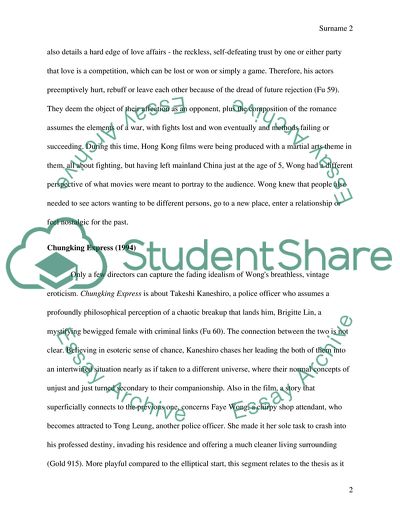Cite this document
(The Films Chungking Express, Happy Together and In the Mood for Love Movie Review, n.d.)
The Films Chungking Express, Happy Together and In the Mood for Love Movie Review. https://studentshare.org/visual-arts-film-studies/1852930-writers-decision
The Films Chungking Express, Happy Together and In the Mood for Love Movie Review. https://studentshare.org/visual-arts-film-studies/1852930-writers-decision
(The Films Chungking Express, Happy Together and In the Mood for Love Movie Review)
The Films Chungking Express, Happy Together and In the Mood for Love Movie Review. https://studentshare.org/visual-arts-film-studies/1852930-writers-decision.
The Films Chungking Express, Happy Together and In the Mood for Love Movie Review. https://studentshare.org/visual-arts-film-studies/1852930-writers-decision.
“The Films Chungking Express, Happy Together and In the Mood for Love Movie Review”. https://studentshare.org/visual-arts-film-studies/1852930-writers-decision.


